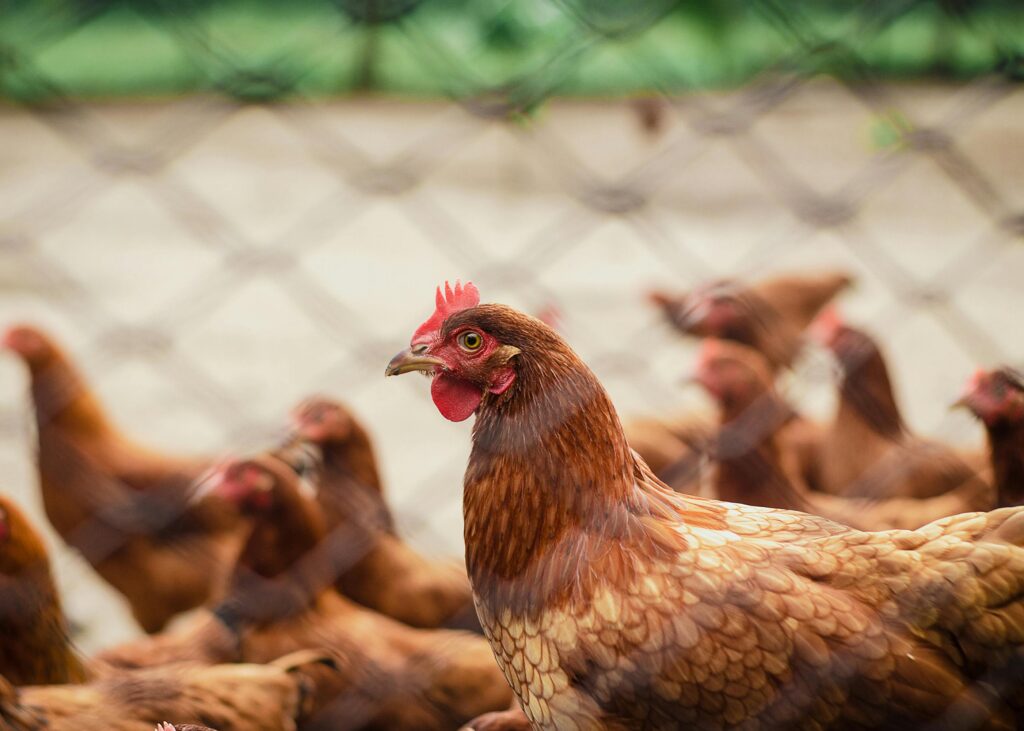
As you may have known, egg prices went up earlier this year due to the bird flu affecting millions of egg-laying hens. Currently the H5 bird flu is widespread in wild birds worldwide and is causing outbreaks in poultry and dairy cows with 70 human cases in U.S. dairy and poultry workers. The Star Tribune recently reported confirmed cases of the bird flu in dairy heard, while Forbes has reported cases of the bird flu in sheep for the first time. Should you be worried about bird flu?
Understanding Bird Flu: What You Need to Know
Bird flu, also known as avian influenza, is a virus that mainly affects birds but can sometimes spread to humans. While this might sound alarming, the chances of most people catching bird flu are very low. Here’s what you need to know about how it spreads, its symptoms, and what to do if you’re concerned.
Should I Be Worried About Bird Flu?
For the average person, the risk of getting bird flu is very low. The virus doesn’t spread easily from birds to humans, and there’s no evidence that it spreads from person to person in everyday situations. However, people who work closely with birds, such as farmers or veterinarians, may have a slightly higher risk. If you don’t have direct contact with birds, there’s little reason to worry.
That said, outbreaks in birds can sometimes lead to rare cases of human infections. It’s always good to stay informed and follow public health recommendations, especially if there is an ongoing outbreak in your area.
How Does It Spread to Humans?
Bird flu spreads when people come into direct contact with infected birds, their droppings, or their saliva. It can also spread by touching surfaces contaminated by the virus and then touching your mouth, nose, or eyes. In rare cases, breathing in dust or droplets from sick birds can lead to infection. Washing your hands and avoiding sick birds are the best ways to stay safe.
Eating properly cooked poultry and eggs is not a known way to get bird flu. The virus is killed by heat, so as long as food is cooked to an internal temperature of 165°F (74°C), there is no risk. However, handling raw poultry improperly could pose a risk if you then touch your face before washing your hands.
How Common Is It?
Human cases of bird flu are extremely rare, so far there are 70 cases in the U.S. since 2024. Most cases occur in people who work closely with poultry or cattle. There is no known person-to-person spread at this time. Health organizations like the CDC and WHO closely monitor bird flu to ensure public safety. Currently the CDC deems the risk posed by H5N1 viruses to the general population as low, and the risk to populations exposed to potentially infected animals as moderate to high.
What Are the Symptoms?
Bird flu symptoms are similar to regular flu symptoms and can range from mild to severe. They may include:
- Fever
- Cough
- Sore throat
- Muscle aches
- Feeling very tired
- Shortness of breath
- Red or watery eyes (in some cases)
In severe cases, bird flu can lead to serious complications like pneumonia or breathing problems. If you feel sick after being around birds, it’s important to see a doctor.
How Is It Diagnosed?
Doctors diagnose bird flu by testing a sample from your nose or throat. If you have flu-like symptoms and may have been exposed to birds, your doctor may recommend a special test to check for avian influenza.
How Is It Treated?
There’s no specific cure for bird flu, but antiviral medications like Tamiflu (oseltamivir) or Relenza (zanamivir) can help make the illness milder if taken early. These medications work best when started within 48 hours of symptoms appearing.
Other treatments include:
- Getting plenty of rest
- Drinking fluids to prevent dehydration
- Taking over-the-counter pain relievers like ibuprofen or acetaminophen to reduce fever and aches
In severe cases, hospitalization may be required, especially if the patient develops pneumonia or breathing difficulties. Doctors may provide oxygen therapy or other supportive care to help manage symptoms.
How Can I Protect Myself?
The best way to avoid bird flu is to take simple precautions:
- Avoid close contact with wild birds or sick poultry.
- Wash your hands regularly, especially if you’ve been around birds.
- Cook poultry and eggs thoroughly before eating.
Final Thoughts
While bird flu sounds scary, the risk to most people is very low. You can protect yourself and your family by staying informed and practicing good hygiene. If you’re worried about bird flu or have flu-like symptoms after being around birds, talk to a doctor for guidance. Public health authorities continue to monitor and control outbreaks in order to ensure that the general public remains safe from widespread infections.
